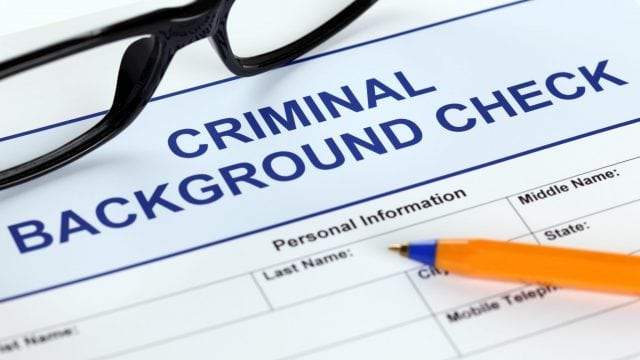 If you are seeking to expunge your criminal record but you still owe restitution, you may be wondering whether you are even eligible to apply for expungement. In order to be eligible for an expungement in New Jersey, there are certain time requirements that must be satisfied. For example, if you are seeking to expunge a disorderly persons offense, you must normally wait at least 5 years before applying to expunge your record (although you can apply for an “early expungement” after 3 years). Moreover, if you are seeking to expunge a felony conviction, you must wait at least 10 years before applying for an expungement (although you can apply for an “early expungement” after 5 years).
If you are seeking to expunge your criminal record but you still owe restitution, you may be wondering whether you are even eligible to apply for expungement. In order to be eligible for an expungement in New Jersey, there are certain time requirements that must be satisfied. For example, if you are seeking to expunge a disorderly persons offense, you must normally wait at least 5 years before applying to expunge your record (although you can apply for an “early expungement” after 3 years). Moreover, if you are seeking to expunge a felony conviction, you must wait at least 10 years before applying for an expungement (although you can apply for an “early expungement” after 5 years).
For purposes of these waiting periods, however, the clock does not start to run until the date of “conviction, payment of fine, satisfactory completion of probation or parole, or release from incarceration, whichever is later.” See N.J.S.A. 2C:52-2 and N.J.S.A. 2C:52-3. Thus, rather that starting to run on the date of conviction, if you were ordered to complete a period or probation or pay court fines, the time period will not start to run until the fines has been paid or you have completed probation. Thus, if you were ordered to pay a large sum of restitution, which you are either still in the process of paying off or which you just recently paid off, you might be wondering whether you have satisfied the applicable waiting period.
Court Fines vs. Restitution
While court fines and restitution are often confused, they are not the same thing. Court fines go directly to the municipality and/or state and are ordered to be paid as a form of punishment for the offense. Restitution, on the other hand, is money that the defendant pays to the victim (or a state restitution fund) in an effort to make the victim whole again. Restitution is typically ordered in cases involving theft or fraud with the defendant being ordered to return or replace stolen or damaged property or provide monetary compensation.
For purposes of this blog post, be sure to keep in mind that we are focusing solely on the payment of restitution, as opposed to court fines. If you have not yet paid off your court fines and you are wondering what effect that will have on your expungement eligibility, please see our blog post on Court Fines and Expungement Eligibility.
How Does Restitution Effect Expungement Eligibility?
Restitution in New Jersey is usually ordered as a condition of probation. If probation is granted, the defendant will be required to make restitution payments as a condition of remaining on probation. If the defendant willfully fails to make restitution payments, the court can revoke probation and incarcerate the defendant.
In cases where the defendant has been ordered to pay a large sum of restitution, and has not finished paying off restitution in full at the time that probation was originally ordered to be terminated, one of two things will usually happen. Either: 1) the defendant’s probation will be extended on the basis that restitution is still owed; or 2) the defendant will be released from probation and the remaining amount owed in restitution will be converted into a civil monetary judgment against the defendant.
If Probation Is Extended on the Basis that Restitution Is Still Owed
In those cases where the defendant’s probationary period is extended on the basis of unpaid restitution, the applicable waiting period for purposes of expungement eligibility will not start to run until the defendant is successfully terminated from probation. This is because the New Jersey expungement statutes state that the applicable waiting period will not start to run until “conviction, payment of fine, satisfactory completion of probation or parole, or release from incarceration, whichever is later.”
Thus, until the defendant completes probation, the clock will not have started to run. For this reason, it is recommended that you make payment in full on the restitution obligation as soon as you are financially capable of doing so. Alternatively, you can either speak with your probation officer or a criminal defense attorney to see if there is any way you can be released from probation, with your restitution obligation being converted into a civil monetary judgment as discussed below. This, in turn, will allow you to be successfully terminated from probation, which will start the clock for purposes of expungement eligibility.
If Restitution Is Converted Into a Civil Judgment
If, as opposed to extending your probation on account of unpaid restitution, your restitution obligation is converted into a monetary civil judgment, the good news is that a strong argument can be made that your expungement clock has started to run on the date you were released from probation.
Although case law in New Jersey has not yet addressed this issue, an experienced New Jersey expungement lawyer would make an argument on your behalf that that statutory language quoted above (indicating that the applicable waiting period begins to run on the date of “conviction, payment of fine, satisfactory completion of probation or parole, or release from incarceration, whichever is later”) fails to say anything about having to pay off restitution in full. While the quoted language does mention that court fines must also be paid in full, for the reasons discussed above, court fines and restitution are not the same thing.
Thus, an experienced New Jersey expungement lawyer would point out this discrepancy to the court, and advance argument as to why the New Jersey expungement statutes should not be interpreted as requiring that the defendant to make restitution payment in full before the applicable waiting period begins to run. The New Jersey expungement lawyers at Katherine O’Brien Law believe, in fact, that this result is exactly what the New Jersey legislature intended and that there is simply no basis under the law to require the defendant to pay restitution in full before applying for expungement, given that a civil restitution order has been entered, which will sufficiently protect the victim’s restitution interest.
Experienced New Jersey Expungement Lawyers – $895.00 Expungements
If you still owe restitution and you have questions about its effect on your expungement eligibility in New Jersey, contact the New Jersey expungement lawyers at Katherine O’Brien Law today for a free telephone consultation. At Katherine O’Brien Law, we focus almost exclusively on New Jersey expungements and provide affordable expungements services with all inclusive expungements for only $895.00. Moreover, flexible payment plans are available. Call now!







